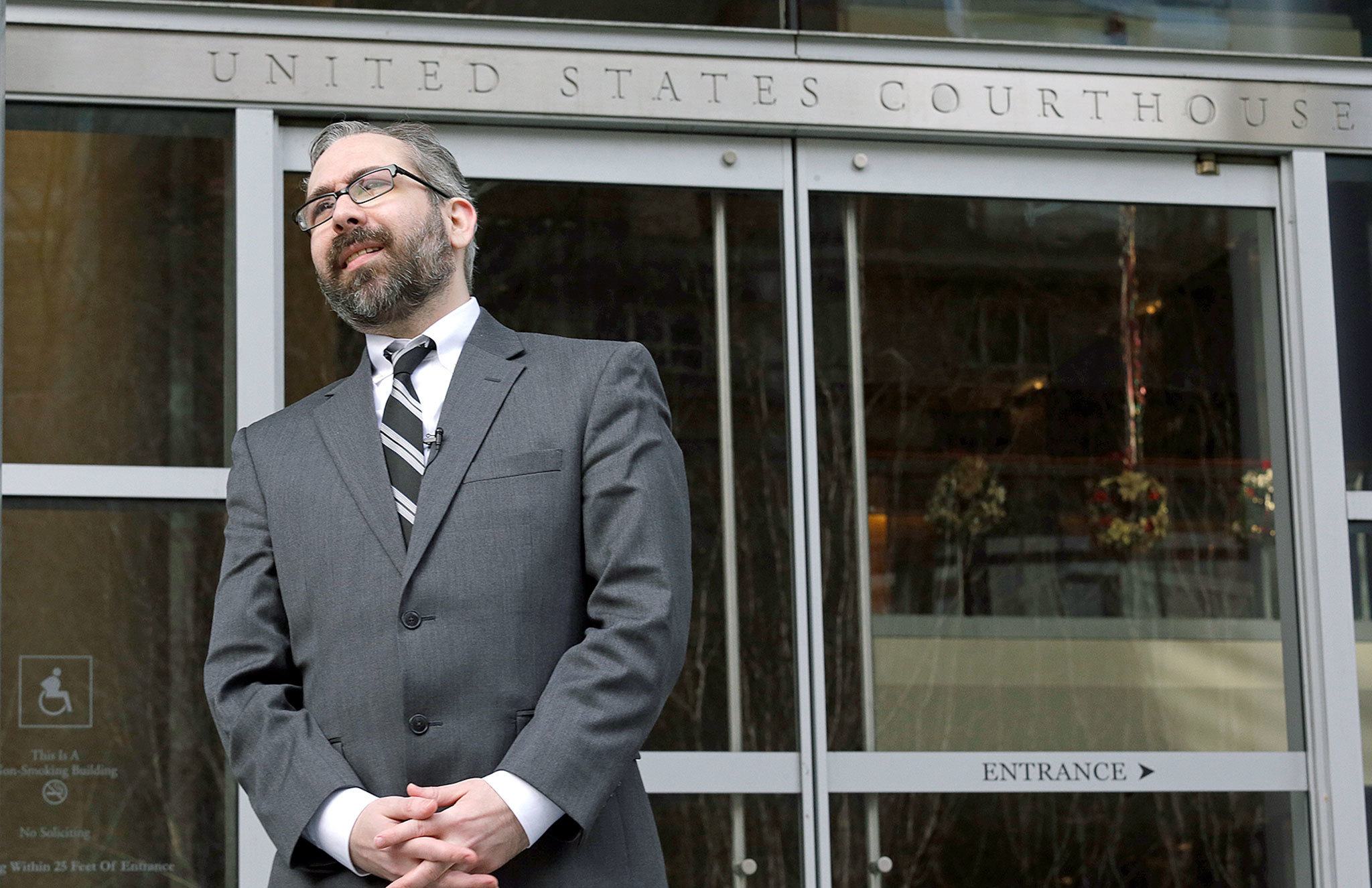By The Herald Editorial Board
The revolt by so-called Hamilton Electors, including one from Everett, was not successful. The Electoral College on Monday made official what was nearly certain since Election Day: Donald Trump will be the 45th president of the United States.
Bret Chiafalo and others hoping to deny the presidency to Trump used as their justification Alexander Hamilton’s Federalist Paper No. 68 and its call that electors were empowered to assess and investigate a candidate’s qualifications, voting against their state’s popular vote if they saw it as necessary to protect the country. Ironically, Chiafalo had offered to buck his pledge to cast his Electoral College ballot for Democrat Hillary Clinton if he and other Hamilton Electors could convince electors in red states to cast their ballot for an alternative to Trump.
In the end, the effort failed; Trump surpassed the 270 minimum he needed to win. Chiafalo and three other Washington state electors did not cast votes for Clinton. Two electors in Texas rejected Trump.
The Electoral College awards electors to each state based on the same formula used to determine the size of each state’s delegation in the House of Representatives, plus the two senators. But electors, except in Maine and Nebraska, are awarded as winner-take-all. The 2016 election is now the fourth time that the presidency went to the loser of the popular vote, and the second time in the last five elections.
Monday’s result doesn’t change the results of the popular vote. Clinton tallied 65.8 million votes, about 2.86 million more than were cast for Trump. Clinton won the popular vote 48.1 percent to 46 percent. And it doesn’t resolve the problems the Electoral College presents to our democracy and to the mandate given the president.
Although not typically concerned with the facts, President-elect Trump will have to govern under the reality that he was not the popular choice of his country.
And we’ve noted previously that the Electoral College can discourage voters who know they are outnumbered by supporters of the other side’s candidate. Knowing that Washington state was solidly on Clinton’s map, how many potential Trump voters in the state simply gave the election a pass?
Disparities in state population mean that the votes of residents in smaller rural states carry more weight in the Electoral College. That’s an advantage according to some supporters of the electoral system; the institution acts as a check against the nation’s urban areas, giving smaller rural states more sway.
“Our Founding Fathers established the Electoral College because those larger states, those larger areas, don’t necessarily need to be the ones that rule,” said Mary Sue McClurkin, a Republican elector from Alabama in an Associated Press report Sunday.
But why should the nation’s rural areas be more deserving of choosing our president than urban or suburban regions? They aren’t. The president should be popularly elected, as is every other public office throughout the nation.
Truthfully, the nation’s rural areas aren’t in danger of being over-ruled by the big cities if the nation chooses the president by popular vote.
National Popular Vote, which advocates for choosing the president by popular vote, crunched the numbers after the 2012 election and found that the nation’s 100 largest cities account for about a sixth of the U.S. population and reflected about 63 percent support for the Democratic Party. The nation’s rural areas also accounted for about a sixth of the population and gave Republican’s 60 percent of their vote. The rest of the nation, two-thirds, were evenly split regarding party preference.
Doing away with the Electoral College would be difficult, as it would require a Constitutional amendment, but National Popular Vote already is working on a solution that would keep the system in place but give the final say to the popular election.
National Popular Vote is asking the nation’s legislatures to pass a law that would give all their electors not to the winner of that state but to the candidate who wins the most popular votes in all 50 states and the District of Columbia. To enact the change, states representing 270 electoral votes — the same threshold that determines the presidency — have to the adopt the popular vote bill.
To date, 11 states, including Washington state, representing 165 electoral votes, have passed the bill. Washington state signed it into law in 2009. A poll taken in late 2008 showed that 77 percent of state residents supported the national popular vote. States that would total 105 or more electoral votes need to be persuaded to pass the popular vote bill.
The Electoral College was a compromise intended for an 18th-century political landscape, but it fails in the 21st century where it has twice contradicted the will of the people.
Every vote should count the same as any other.
Talk to us
> Give us your news tips.
> Send us a letter to the editor.
> More Herald contact information.

























